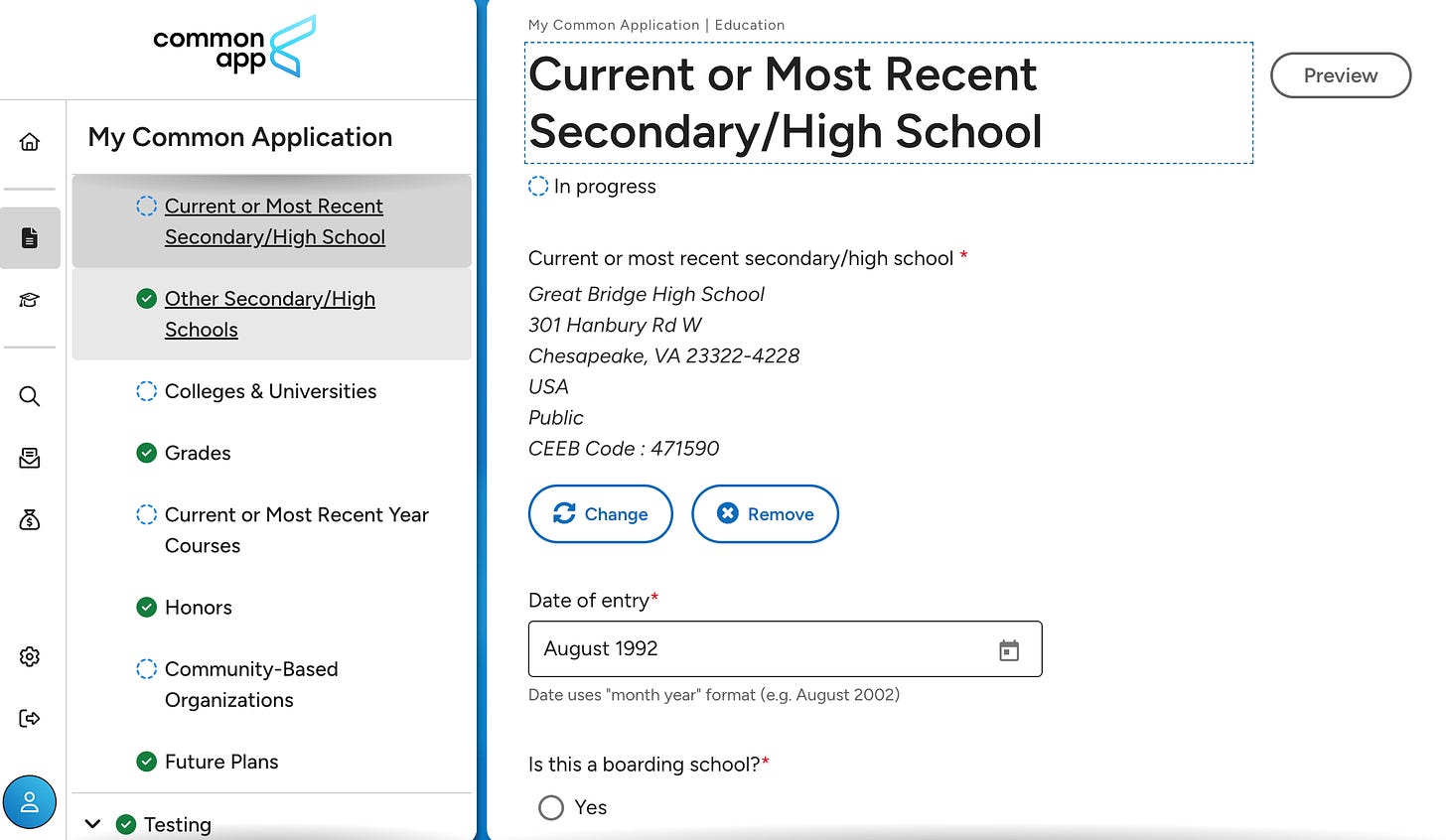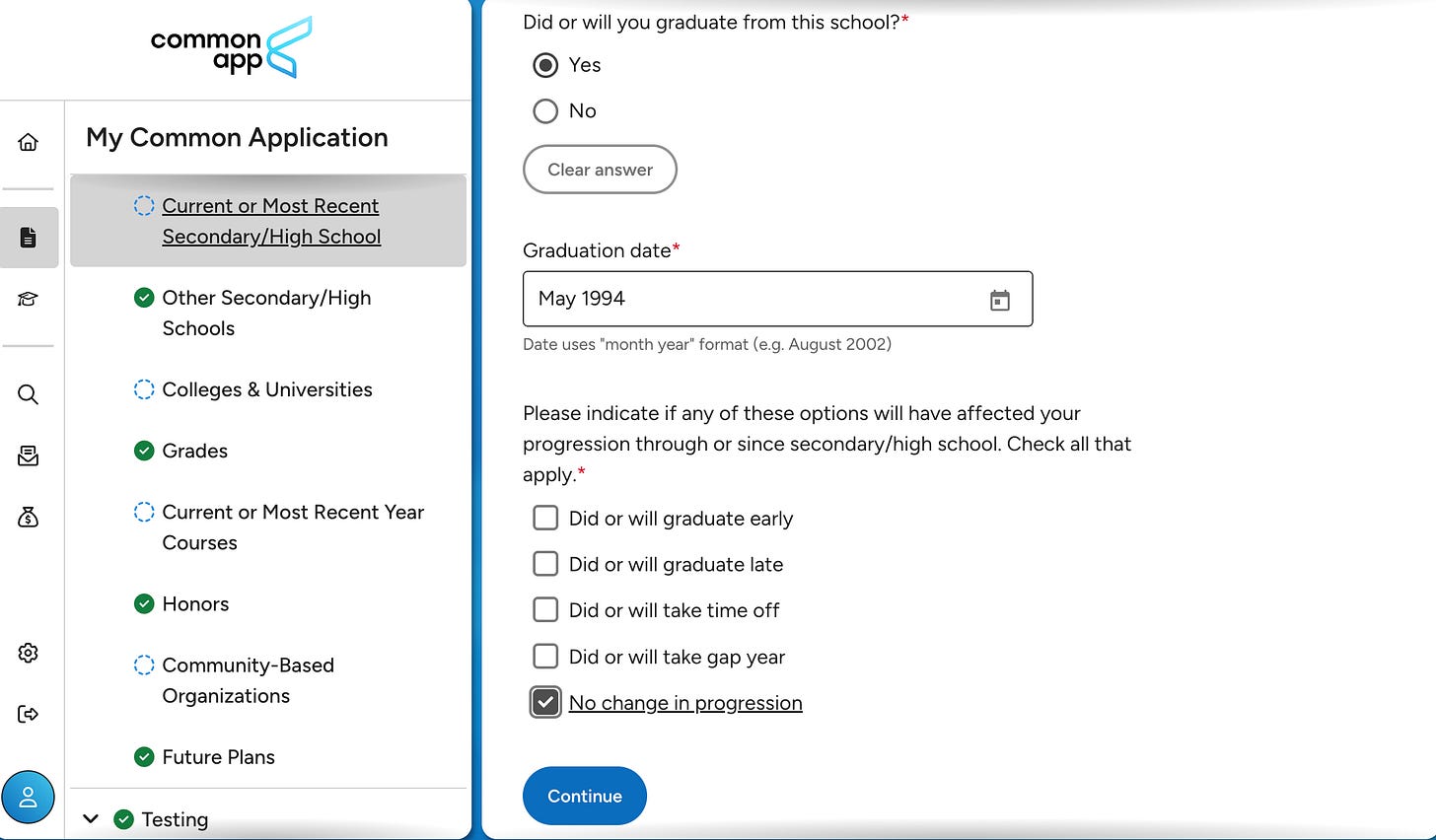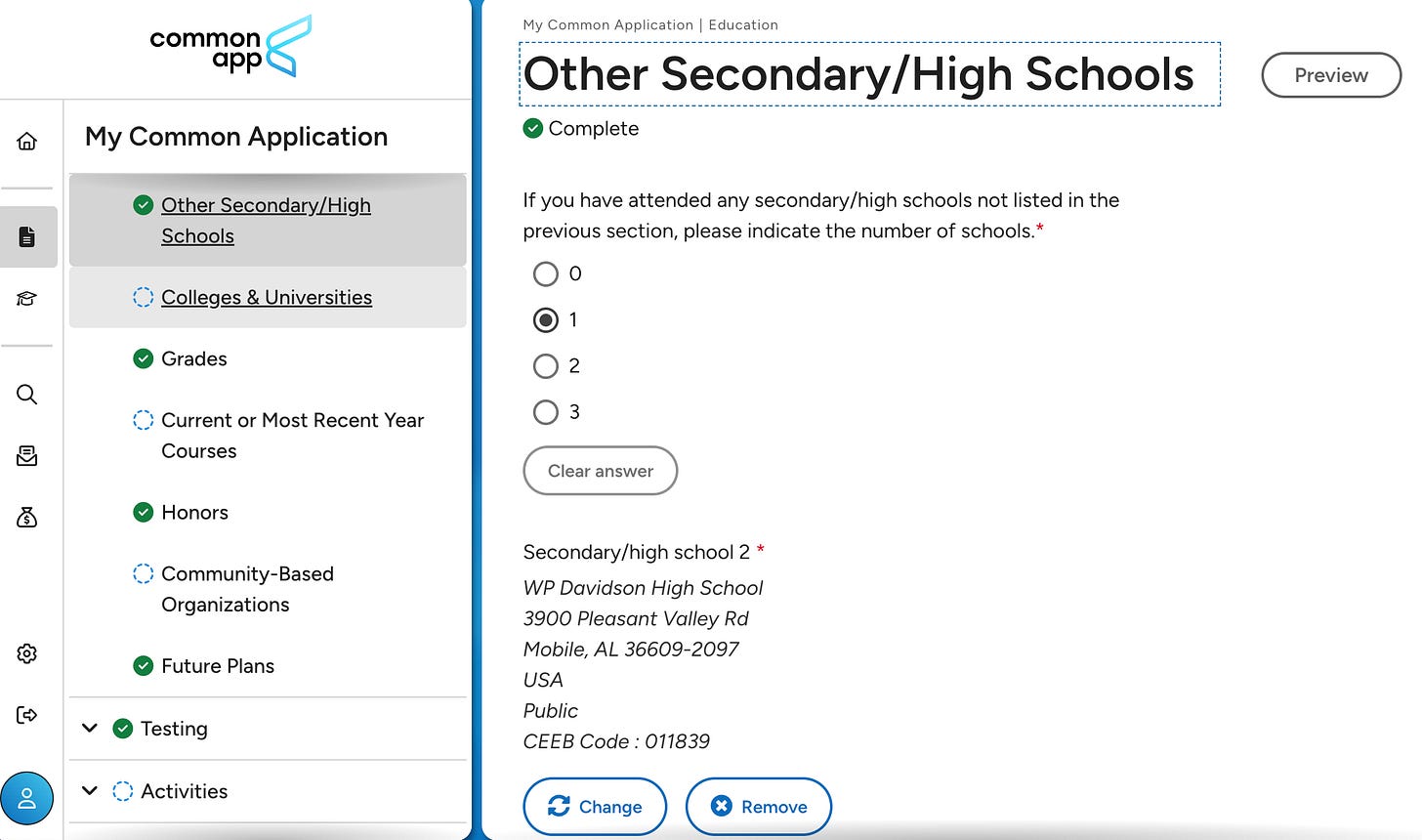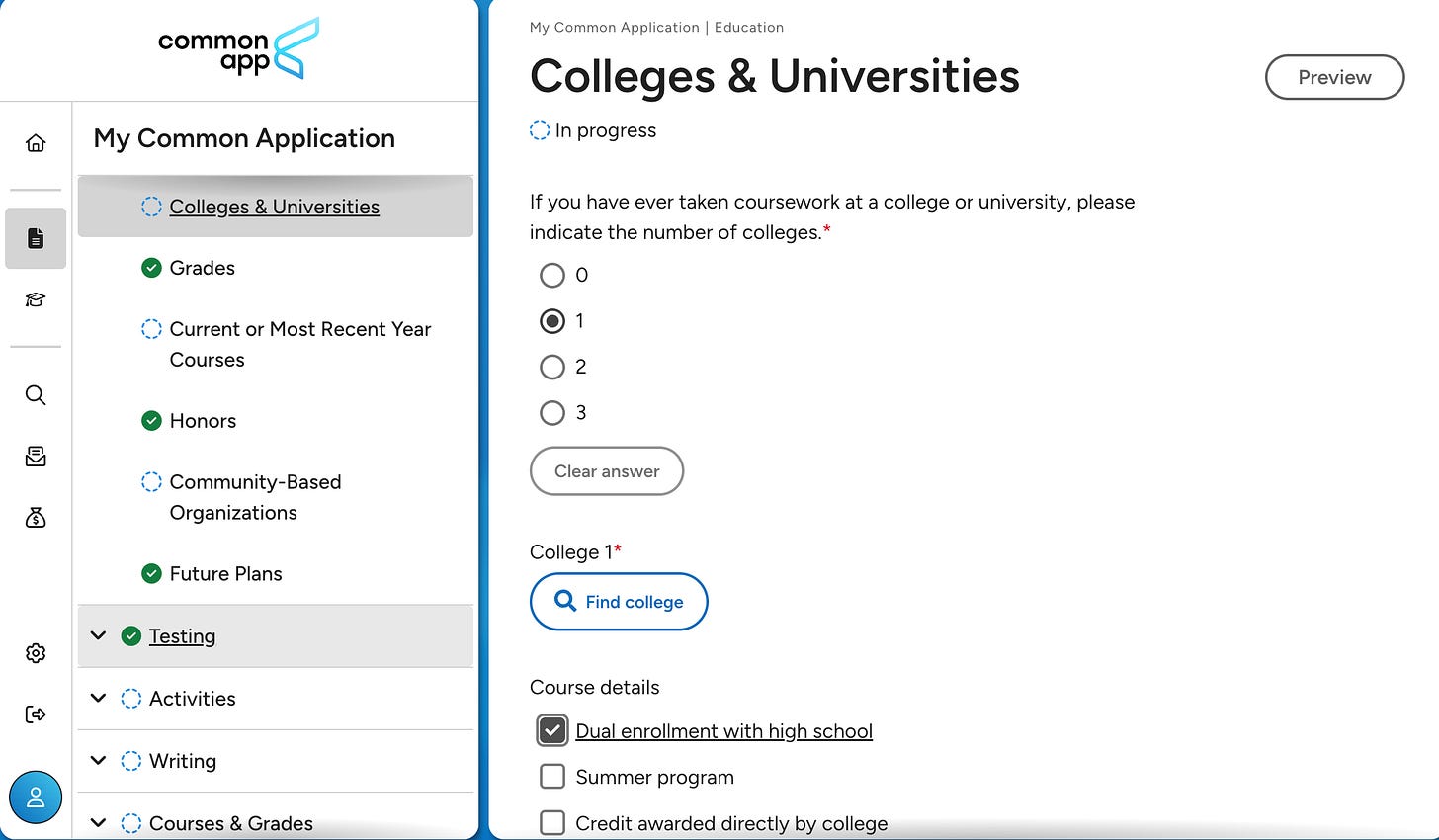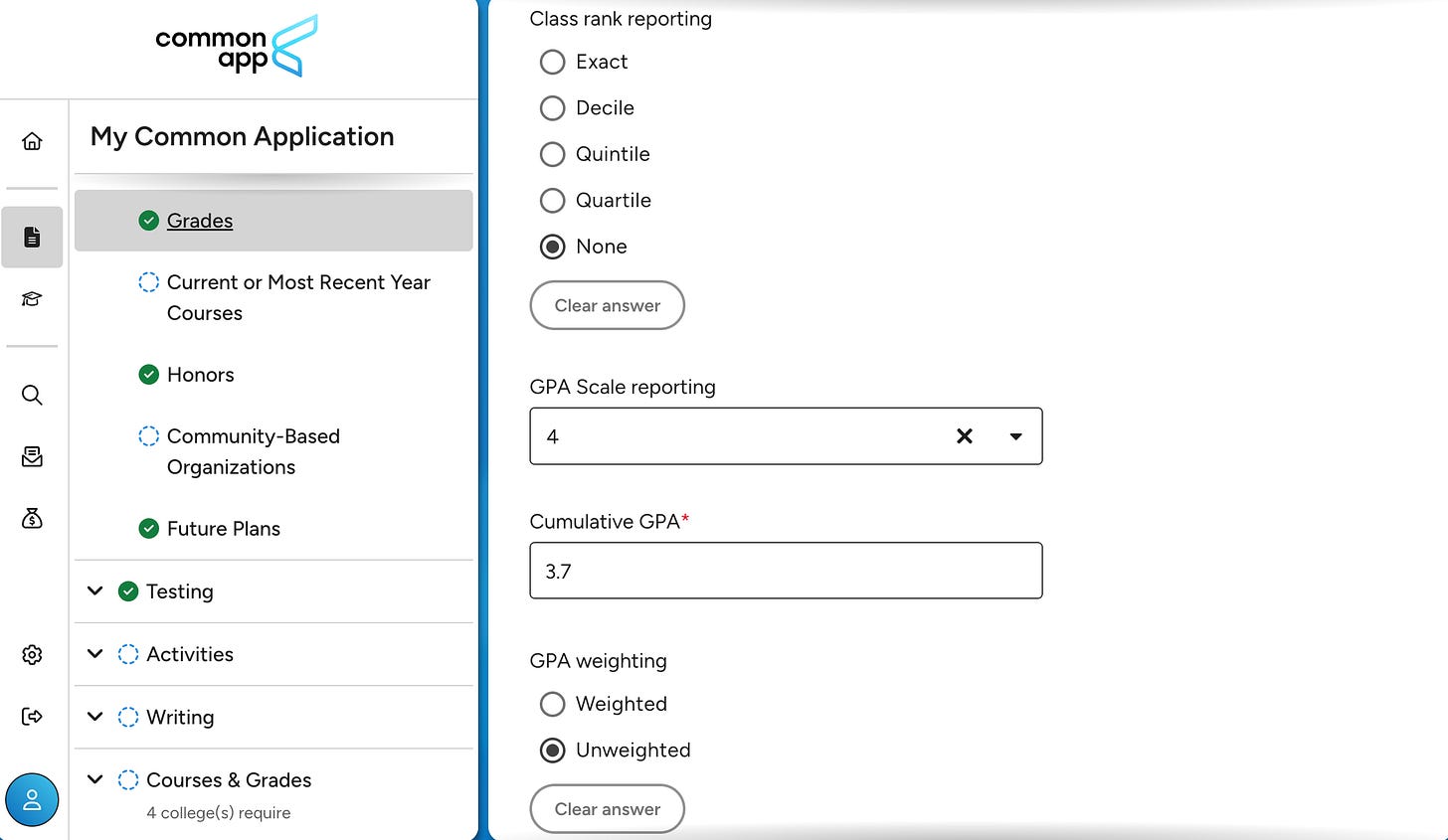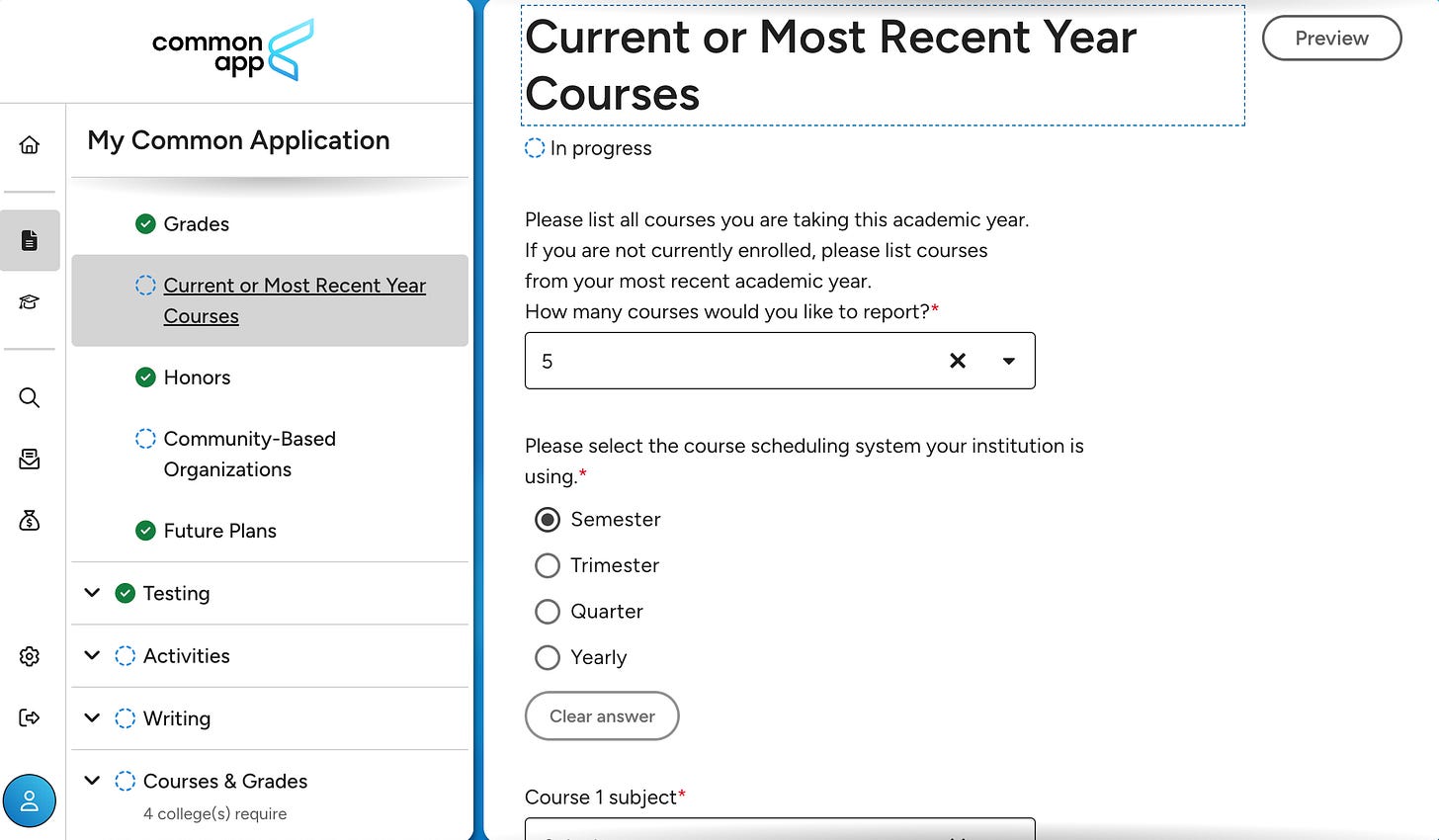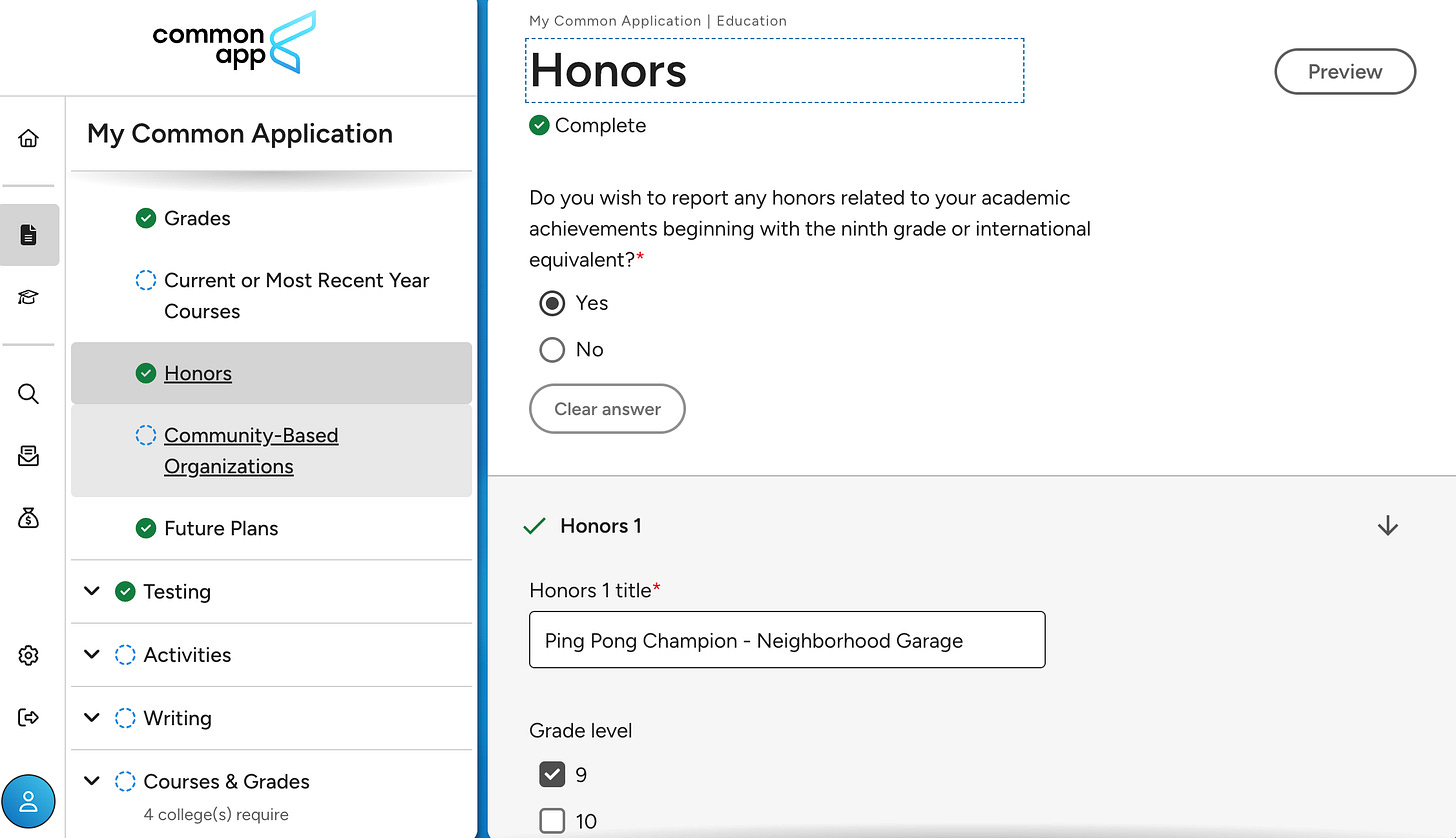Common App Section by Section - Education
Learn how to fill out the Education section of the Common App and present your academic record effectively.
Education
In this section of the Common App you’ll be asked to provide information about your academic background - what high school(s) you’ve attended, your courses and grades, and any college credits or classes you may have taken.
Standard guidance holds:
Always answer to the best of your ability, meaning: truthfully.
It is important to be accurate. Don’t guess; look it up or ask someone.
If you are unsure, you can get information from your school counsellor.
Allow at least 1/2hr to complete this section.
*IMPORTANT - TRANSCRIPT: DO THIS FIRST*
There is pre-work! You’ll want to get a copy of your transcript from your school counsellor before you start completing the Education section.
This is not the place for estimates or guesswork. Your high school transcript contains the official information that college admissions officers will see, and you should accurately reflect that information in this section.
Now, you might wonder why you need to complete this section if your transcript already has most of this information. It’s about standardising the format, which makes it easier for admissions officers to quickly review. They’ll dive into your full transcript details later in the process.
Current or Most Recent High School
If you’ve only attended a single high school all four years, this section is pretty straightforward - use the search to find your high school and then complete basic questions about when you attended, whether or not it’s a boarding school, and when you’ll graduate.
If you’ve attended multiple schools, list the most recent one.
If you are a homeschooled student, there is an option for that too.
Most students will move directly from high school to college. If that is you, choose ‘No change in progression’.
Else, if you graduated early (as may be the case for some highly recruited high school athletes), graduated in five or more years, or have or will be taking time between high school and college you would indicate that here.
Other High Schools
This is where you list other high schools you’ve attended. You should complete this section if -
Your family moved during high school, causing you to change schools
You retook a class (at a different school) because of a low grade
You enrolled in an online class at another school, perhaps because your school didn’t offer it
You enrolled in a summer program outside of your high school
You chose to explore a course subject not offered at your high school
Colleges & Universities
Running start and dual enrollment high school students should indicate the college-level courses taken.
There’s a question about which, if any, college degrees you’ve earned. Just about every high school student should leave this question blank (an answer is not required) as you’ve not yet received any college degree.
NOTE: If you are a high school senior, you are applying to college as a “first time college student” even if you’ve been enrolled in college courses during high school. Double-check that you answered this question correctly when setting up your Common App profile :).
Grades
This is a very important section! (obvs)
Do NOT estimate your GPA.
Rather, get the information directly from your transcript (which, again, you can receive by contacting your high school counsellor). Your transcript will also clearly indicate if your school uses weighted or unweighted GPAs.
If you don’t know the approximate number of students in your graduating class, use Google to search for your high school’s profile or ask your counsellor.
Many schools do not include class rank reporting, but if yours does you would indicate that information in this section (again, this information is probably on your transcript or, if not, can be obtained from your school counsellor).
Current or Most Recent Year Courses
Many students will end up applying to college during the fall of their senior year, before grades get released for that semester. Their transcript will only tell colleges what courses have been taken through junior year. That’s why this section exists - so colleges can understand what senior year looks like.
Your senior year course load is a key indicator of your academic commitment. Colleges expect you to maintain or even increase the level of rigour you’ve shown in previous years, so keep in mind that a ‘coasting’ schedule can send the wrong message about your motivation and readiness for college.
Do not abbreviate names of courses - type them exactly as they will appear on your transcript (again, you can ask your counsellor if you need help with this).
Honors (Academic Awards)
This section allows you to note awards related to academic achievement you may have earned during your time in high school.
It is not the place where you’ll need to indicate what “honors-level” courses (e.g. advanced-level courses indicating high academic rigour) you may have taken during high school - that information will be part of the senior year courses section of the application, and your transcript.
Examples of academic honours you may have received include -
Honour roll
National Merit Scholar recognition
Membership in an honour society
Publications in research papers, journals, newspapers
Awards for writing, art, music
Science or engineering fair awards
Any school, state, national, or international award that you won in high school
You can include up to five awards. Descriptions are only 100 characters in length, so should be kept precise. But, do add helpful mini-explanations to give context. E.g. “academic excellence honour” is probably better phrased as “STEM high GPA award (1 of 100 statewide) & received $1k prize”.
If the award contains an acronym, include the full name instead.
Always put the achievement with the largest impact first, then list the remaining awards. Largest impact means the one you are most proud of which isn’t necessarily the same thing as the one you think college admissions officers will care about the most. This is your opportunity to tell your story, not someone else’s.
It is also perfectly OK to say that you don’t have any academic awards to report.
FAQs
Answers to a few other commonly asked questions:
What is a Community-Based Organisation (CBO)?
CBOs work through schools, churches, and local communities to provide educational support to students in need. Assistance is free. If you received help from such an organisation, you would list it here. Colleges use this information to better understand your story, and your community. Examples of CBOs: Achieve Program, Boys & Girls Clubs, College Advising Corps, and QuestBridge.
I am enrolled in college courses while in high school, should I indicate that I’m already a college student?
No. You’ll indicate that you are applying as a first-year college student even if you have been enrolled in college courses during your high school years through programs such as dual enrollment and/or running start.
I attended more than one high school and/or was enrolled in college classes via dual enrollment, how does this info appear on my transcript?
Ask your current school’s high school counsellor for a copy of your official transcript - this is the only way to know for sure how that information will be presented. In most cases, your current high school probably includes the information from the other school(s). In other words, your most recent school’s transcript contains info from the other school(s) you’ve attended. But, occasionally, a school’s policy is to only include their own information on their transcript, which means that you’ll be submitting more than one transcript (current school + previous school(s)) through your Common Application. Talk to your counsellor to understand how this will work given your unique circumstances.




